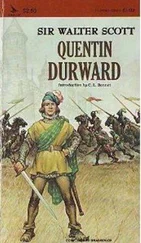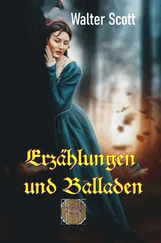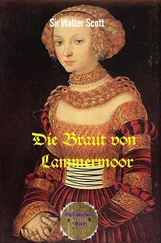Walter Scott - Letters on Demonology and Witchcraft
Здесь есть возможность читать онлайн «Walter Scott - Letters on Demonology and Witchcraft» весь текст электронной книги совершенно бесплатно (целиком полную версию без сокращений). В некоторых случаях можно слушать аудио, скачать через торрент в формате fb2 и присутствует краткое содержание. Жанр: История, на английском языке. Описание произведения, (предисловие) а так же отзывы посетителей доступны на портале библиотеки ЛибКат.
- Название:Letters on Demonology and Witchcraft
- Автор:
- Жанр:
- Год:неизвестен
- ISBN:нет данных
- Рейтинг книги:4 / 5. Голосов: 1
-
Избранное:Добавить в избранное
- Отзывы:
-
Ваша оценка:
- 80
- 1
- 2
- 3
- 4
- 5
Letters on Demonology and Witchcraft: краткое содержание, описание и аннотация
Предлагаем к чтению аннотацию, описание, краткое содержание или предисловие (зависит от того, что написал сам автор книги «Letters on Demonology and Witchcraft»). Если вы не нашли необходимую информацию о книге — напишите в комментариях, мы постараемся отыскать её.
Letters on Demonology and Witchcraft — читать онлайн бесплатно полную книгу (весь текст) целиком
Ниже представлен текст книги, разбитый по страницам. Система сохранения места последней прочитанной страницы, позволяет с удобством читать онлайн бесплатно книгу «Letters on Demonology and Witchcraft», без необходимости каждый раз заново искать на чём Вы остановились. Поставьте закладку, и сможете в любой момент перейти на страницу, на которой закончили чтение.
Интервал:
Закладка:
"Thou hast proclaimed our power—be thou our prey!"
Upon this subject the reader may consult a very entertaining little volume, called "Sketches of Perthshire," [37] [37] Edinburgh, 1812.
by the Rev. Dr. Grahame of Aberfoyle. The terrible visitation of fairy vengeance which has lighted upon Mr. Kirke has not intimidated his successor, an excellent man and good antiquary, from affording us some curious information on fairy superstition. He tells us that these capricious elves are chiefly dangerous on a Friday, when, as the day of the Crucifixion, evil spirits have most power, and mentions their displeasure at any one who assumes their accustomed livery of green, a colour fatal to several families in Scotland, to the whole race of the gallant Grahames in particular; insomuch that we have heard that in battle a Grahame is generally shot through the green check of his plaid; moreover, that a veteran sportsman of the name, having come by a bad fall, he thought it sufficient to account for it, that he had a piece of green whip-cord to complete the lash of his hunting-whip. I remember, also, that my late amiable friend, James Grahame, author of "The Sabbath," would not break through this ancient prejudice of his clan, but had his library table covered with blue or black cloth, rather than use the fated colour commonly employed on such occasions.
To return from the Perthshire fairies, I may quote a story of a nature somewhat similar to that of Mas Robert Kirke. The life of the excellent person who told it was, for the benefit of her friends and the poor, protracted to an unusual duration; so I conceive that this adventure, which took place in her childhood, might happen before the middle of last century. She was residing with some relations near the small seaport town of North Berwick, when the place and its vicinity were alarmed by the following story:—
An industrious man, a weaver in the little town, was married to a beautiful woman, who, after bearing two or three children, was so unfortunate as to die during the birth of a fourth child. The infant was saved, but the mother had expired in convulsions; and as she was much disfigured after death, it became an opinion among her gossips that, from some neglect of those who ought to have watched the sick woman, she must have been carried off by the elves, and this ghastly corpse substituted in the place of the body. The widower paid little attention to these rumours, and, after bitterly lamenting his wife for a year of mourning, began to think on the prudence of forming a new marriage, which, to a poor artisan with so young a family, and without the assistance of a housewife, was almost a matter of necessity. He readily found a neighbour with whose good looks he was satisfied, whilst her character for temper seemed to warrant her good usage of his children. He proposed himself and was accepted, and carried the names of the parties to the clergyman (called, I believe, Mr. Matthew Reid) for the due proclamation of banns. As the man had really loved his late partner, it is likely that this proposed decisive alteration of his condition brought back many reflections concerning the period of their union, and with these recalled the extraordinary rumours which were afloat at the time of her decease, so that the whole forced upon him the following lively dream:—As he lay in his bed, awake as he thought, he beheld, at the ghostly hour of midnight, the figure of a female dressed in white, who entered his hut, stood by the side of his bed, and appeared to him the very likeness of his late wife. He conjured her to speak, and with astonishment heard her say, like the minister of Aberfoyle, that she was not dead, but the unwilling captive of the Good Neighbours. Like Mr. Kirke, too, she told him that if all the love which he once had for her was not entirely gone, an opportunity still remained of recovering her, or winning her back , as it was usually termed, from the comfortless realms of Elfland. She charged him on a certain day of the ensuing week that he should convene the most respectable housekeepers in the town, with the clergyman at their head, and should disinter the coffin in which she was supposed to have been buried. "The clergyman is to recite certain prayers, upon which," said the apparition, "I will start from the coffin and fly with great speed round the church, and you must have the fleetest runner of the parish (naming a man famed for swiftness) to pursue me, and such a one, the smith, renowned for his strength, to hold me fast after I am overtaken; and in that case I shall, by the prayers of the church, and the efforts of my loving husband and neighbours, again recover my station in human society." In the morning the poor widower was distressed with the recollection of his dream, but, ashamed and puzzled, took no measures in consequence. A second night, as is not very surprising, the visitation was again repeated. On the third night she appeared with a sorrowful and displeased countenance, upbraided him with want of love and affection, and conjured him, for the last time, to attend to her instructions, which, if he now neglected, she would never have power to visit earth or communicate with him again. In order to convince him there was no delusion, he "saw in his dream" that she took up the nursling at whose birth she had died, and gave it suck; she spilled also a drop or two of her milk on the poor man's bed-clothes, as if to assure him of the reality of the vision.
The next morning the terrified widower carried a statement of his perplexity to Mr. Matthew Reid, the clergyman. This reverend person, besides being an excellent divine in other respects, was at the same time a man of sagacity, who understood the human passions. He did not attempt to combat the reality of the vision which had thrown his parishioner into this tribulation, but he contended it could be only an illusion of the devil. He explained to the widower that no created being could have the right or power to imprison or detain the soul of a Christian—conjured him not to believe that his wife was otherwise disposed of than according to God's pleasure—assured him that Protestant doctrine utterly denies the existence of any middle state in the world to come—and explained to him that he, as a clergyman of the Church of Scotland, neither could nor dared authorize opening graves or using the intervention of prayer to sanction rites of a suspicious character. The poor man, confounded and perplexed by various feelings, asked his pastor what he should do. "I will give you my best advice," said the clergyman. "Get your new bride's consent to be married to-morrow, or to-day, if you can; I will take it on me to dispense with the rest of the banns, or proclaim them three times in one day. You will have a new wife, and, if you think of the former, it will be only as of one from whom death has separated you, and for whom you may have thoughts of affection and sorrow, but as a saint in Heaven, and not as a prisoner in Elfland." The advice was taken, and the perplexed widower had no more visitations from his former spouse.
An instance, perhaps the latest which has been made public, of communication with the Restless People—(a more proper epithet than that of Daoine Shi , or Men of Peace, as they are called in Gaelic)—came under Pennant's notice so late as during that observant traveller's tour in 1769. Being perhaps the latest news from the invisible commonwealth, we give the tourist's own words.
"A poor visionary who had been working in his cabbage-garden (in Breadalbane) imagined that he was raised suddenly up into the air, and conveyed over a wall into an adjacent corn-field; that he found himself surrounded by a crowd of men and women, many of whom he knew to have been dead for some years, and who appeared to him skimming over the tops of the unbending corn, and mingling together like bees going to hive; that they spoke an unknown language, and with a hollow sound; that they very roughly pushed him to and fro, but on his uttering the name of God all vanished, but a female sprite, who, seizing him by the shoulder, obliged him to promise an assignation at that very hour that day seven-night; that he then found his hair was all tied in double knots (well known by the name of elf-locks), and that he had almost lost his speech; that he kept his word with the spectre, whom he soon saw floating through the air towards him; that he spoke to her, but she told him she was at that time in too much haste to attend to him, but bid him go away and no harm should befall him, and so the affair rested when I left the country. But it is incredible the mischief these ægri somnia did in the neighbourhood. The friends and neighbours of the deceased, whom the old dreamer had named, were in the utmost anxiety at finding them in such bad company in the other world; the almost extinct belief of the old idle tales began to gain ground, and the good minister will have many a weary discourse and exhortation before he can eradicate the absurd ideas this idle story has revived." [38] [38] Pennant's "Tour in Scotland," vol. i. p. 110.
Интервал:
Закладка:
Похожие книги на «Letters on Demonology and Witchcraft»
Представляем Вашему вниманию похожие книги на «Letters on Demonology and Witchcraft» списком для выбора. Мы отобрали схожую по названию и смыслу литературу в надежде предоставить читателям больше вариантов отыскать новые, интересные, ещё непрочитанные произведения.
Обсуждение, отзывы о книге «Letters on Demonology and Witchcraft» и просто собственные мнения читателей. Оставьте ваши комментарии, напишите, что Вы думаете о произведении, его смысле или главных героях. Укажите что конкретно понравилось, а что нет, и почему Вы так считаете.









